Rap that makes me think
From religion to social justice, Stanton, 17, says there’s more to hip-hop than party songs.
Photo illustration by William Brent, 16, Central Los Angeles HS for the Visual and Performing Arts and Sally Choi, 15, The Linden Center
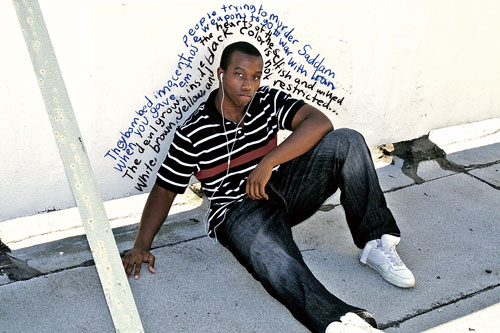
Music is one of the things I live for, from turning on old Wu-Tang Clan songs while I work out to blaring System of a Down every morning before I start my school day. I enjoy all types of music: Johnny Cash’s country, R&B, even metal, but my favorite is hip-hop.
But lately, the rap being played on the radio is all idiotic. If the rappers aren’t making songs insulting women, then they’re glorifying gang culture and drug dealing or talking about their cars, rented mansions and jewelry. Like the song I heard on the radio once, “Ask Them Hoes,” in which Lil Wayne says, “Scarface b***h cocaine by the pie/ Got them hoes sniffin’ like them hoes ‘bout to cry.” People hear this and think that selling drugs and objectifying women is something to be idolized.
This kind of music made me turn to another type of rap—underground rap. Underground rappers are so talented. When I hear them coming up with something original and using metaphors that create a verbal image, I get chills.
When I was listening to radio rap in middle school on Power 106 and 93.5 KDAY, a lot of it was portraying the negative stereotypes that people have of black people. I just could never get into it. I listened to it just for the beat or the way I could dance to it.
Then my freshman year in 2006, on the way to a football game on the team bus, my friend Jared shared his iPod with me. He played a song called “Dance with the Devil” by Immortal Technique. In the song, Immortal Technique tells the story of a young man who wanted to live a criminal life and was so desperate to be like the Scarfaces and mob bosses that he tried to get into a gang through an initiation. He was supposed to rape a woman to show that he was merciless. He raped a woman on the roof of a building only to find out that the woman was his mother. He jumped off of the building and at the end of the song Immortal Technique says:
“Crying out to the sky because he was lonely and scared
But only the devil responded ‘cause God wasn’t there
And right then he knew what it was to be empty and cold
And so he jumped off the roof and died with no soul …
The devil grows inside the hearts of the selfish and wicked
White, brown, yellow and black color is not restricted
You have a self-destructive destiny when you’re inflicted.”
I got goose bumps all through the third verse. I couldn’t believe this was a rap song. It felt like I was listening to the narration of some twisted movie. That’s when I got into underground rap. I thought that if this is what underground rap music is like, then I have been missing out. The song had powerful lyrics and made me think. It may be extreme but it is the path some could take if they choose to be criminals. Some people I used to be close to joined gangs and did horrible things, and others may not have joined gangs but they fell into the mentality of “the more crooked you are the more you are respected.” The power in the lyrics didn’t just come from the words Immortal Technique used to rhyme, but that he was talking about something that I knew about.
Later on in the year when I created my MySpace page I decided to look up Immortal Technique to add “Dance with the Devil” to my page. His “friends” list had dozens of other underground rappers, so I looked at their pages and was amazed by the way all of them had a distinct style. Like Jedi Mind Tricks, a rap group based in Philadelphia, whose music originated from personal experiences, the highs and lows of their lives. They also like to incorporate rock music and classical piano into their songs, which makes an odd but cool sound. Other artists like Demics and Diabolic were more political. KRS-One, a famous rapper from the late 80s and 90s, talked about how people in the “ghetto” needed to be educated and advance themselves so nobody could keep them down. He is what made me want to learn more about classic hip-hop, like N.W.A. and Public Enemy.
When I listen to new underground rap I see what seems like a rebirth of where N.W.A., Run-DMC and Public Enemy left off, talking about issues of the time and what is going on in life. Back then, rap was more than just something you could play at a party and dance to, it was rebellious, anti-establishment, religious and political. It focused on the hardships of people in the urban ghettos and the inequality they had to deal with. Run-DMC made songs like “It’s Like That:”
“Money is the key to end all your woes
Your ups, your downs, your highs and your lows.
Won’t you tell me the last time that love bought you clothes?
It’s like that, and that’s the way it is.”
Rappers like Immortal Technique, Jedi Mind Tricks and Diabolic, who have something good to add to rap, don’t get any recognition while rappers who have no skill, like Soulja Boy, are always played. This is why I don’t even bother to turn the radio on anymore.
Underground hip-hop began as a way to make people aware of what’s going on around them— in their neighborhood, the government or even religion. Like one of my favorite songs by Canibus, “Channel Zero:”
“The holy script from Genesis 1:26
Says let us make man in our image under our likeness
First of all who’s they?
You see if God was truly a single entity that’s not what he would say.”
I think he means that we follow religion so blindly that we don’t even see the contradictory things religious doctrines say. When I heard that I was shocked that he actually said that out loud. I don’t hear a lot of rap lyrics about how the Bible might be wrong. I usually hear that when I’m listening to rock, like Tool and A Perfect Circle. So when I heard this, I agreed with his questioning of biblical verse because when I read religious texts like the Bible and the Qur’an, I also ask questions.
Another song about religion is one Immortal Technique made on his second CD, Revolutionary, Vol. 2, called “The 4th Branch,” where he said:
“The voice of racism preaching the gospel is devilish
A fake church called the prophet Muhammad a terrorist
Forgetting God is not a religion, but a spiritual bond
And Jesus is the most quoted prophet in the Qur’an
They bombed innocent people tryin’ to murder Saddam
When you gave him those chemicals weapons to go to war with Iran
This is the information that they hold back from Peter Jennings
‘Cause Condoleezza Rice is just a new age Sally Hemings.”
I love this song, not only because the lyrics are original, but because it expresses what’s going on in the world. It reinforced my views on religion and politics that I was afraid to say because I didn’t think anyone else felt that way. I believe that religion isn’t what God you pray to or whether you attend a cathedral or a mosque. It’s knowing your purpose in life and being comfortable with your own mortality. I also feel the Bush Administration is responsible for lots of the financial and healthcare problems we have today. Knowing that someone else who isn’t a politician but just an educated entertainer openly expressed his ideals made me feel less weird for thinking that way.
When I began to listen to underground rappers I wondered why none of their music was played on the radio. In the song “Freedom of Speech,” Immortal Technique mentions the shifty things the music industry was doing. I did research to see if what he and other artists were saying was true. A website called hiphopdx.com talked about how commercial rappers get corporate sponsors. On another website I read a list of liquor companies that sponsor artists. Companies work with record labels and tell the artists, if you help sell our product then we will give you money for cars, clothes and jewelry.
What some artists don’t realize is that once they do this, the companies have the power to dictate what they say in their music. So if they wanted to make a song criticizing the government, the companies can say, if we consider this song too controversial you will lose our sponsorship. That is why major labels won’t sign rap artists like Immortal Technique, who is huge in the underground rap scene. His messages are too controversial. Corporate sponsors won’t support him so he would not make as much money as artists who mention a brand of alcohol.
It isn’t as hard as it might seem to find this music. iTunes has two or three underground rap stations in its radio section. Pandora.com lets you type in any artist and song and similar songs will play for free. This is how I discovered skillful lyricists like Apathy and Gang Starr, who were big in the 90s when Tupac was still alive and making music and it was good to be an educated rapper. Some other artists who are making great music today are Chino XL and Crooked I.
I think we shouldn’t marginalize rap and listen to only one style. Party rap is fun because you can dance to it and conscious rap is great because you may hear a song that makes you think and learn something. I believe rap is so versatile. Instead of playing just one type of rap, radio DJs and record labels should pay attention to all aspects of hip-hop, because this culture has more than one voice to be heard.
Stanton recommends checking out these CDs by some of his favorite rappers.
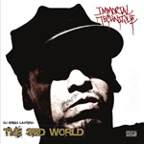 |
Immortal Technique CD: The 3rd World (2008) It’s fun because he’s Peruvian and black so he’s talking about what’s going on in America and what’s going on in Peru—the reggaeton side of him. |
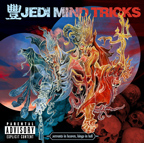 |
Jedi Mind Tricks CD: Servants in Heaven, Kings in Hell (2006) They don’t use what a typical rapper uses as beats. They use South American and Indian beats to make interesting sounds. |
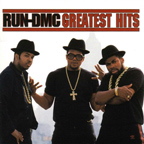 |
Run-DMC CD: Greatest Hits (2002) I like the sound of old rap. It’s more raw but at the same time it’s more fun. It tells you what’s going on but it’s also enjoyable to hear and not always serious. |
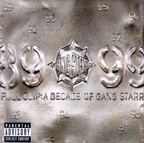 |
Gang Starr CD: Full Clip: A Decade of Gang Starr (1999) They sound like old Wu-Tang Clan or old Tupac. I relate to most of these songs. One of my favorites is “Mass Appeal,” which is about not following the crowd and being original. |
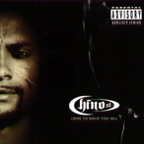 |
Chino XL CD: Here to Save You All (1996) He has a way with words. He uses metaphors to insult other rappers who aren’t as skillful or socially conscious. |
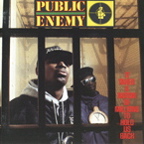 |
Public Enemy CD: It Takes a Nation of Millions to Hold Us Back (1988) They are in your face. They don’t use metaphors or analogies to tell you what’s going on. They’re not afraid to say it. |





